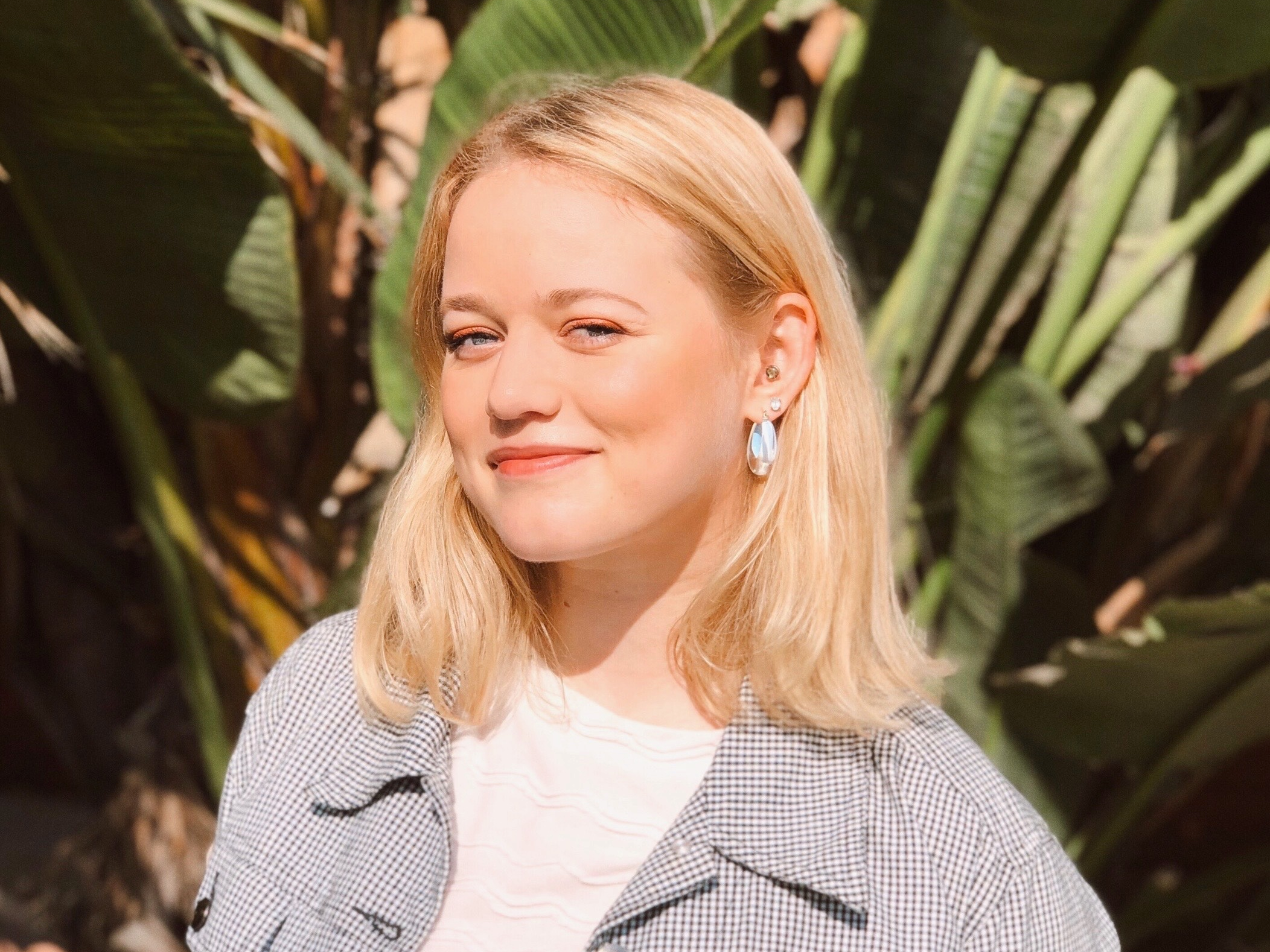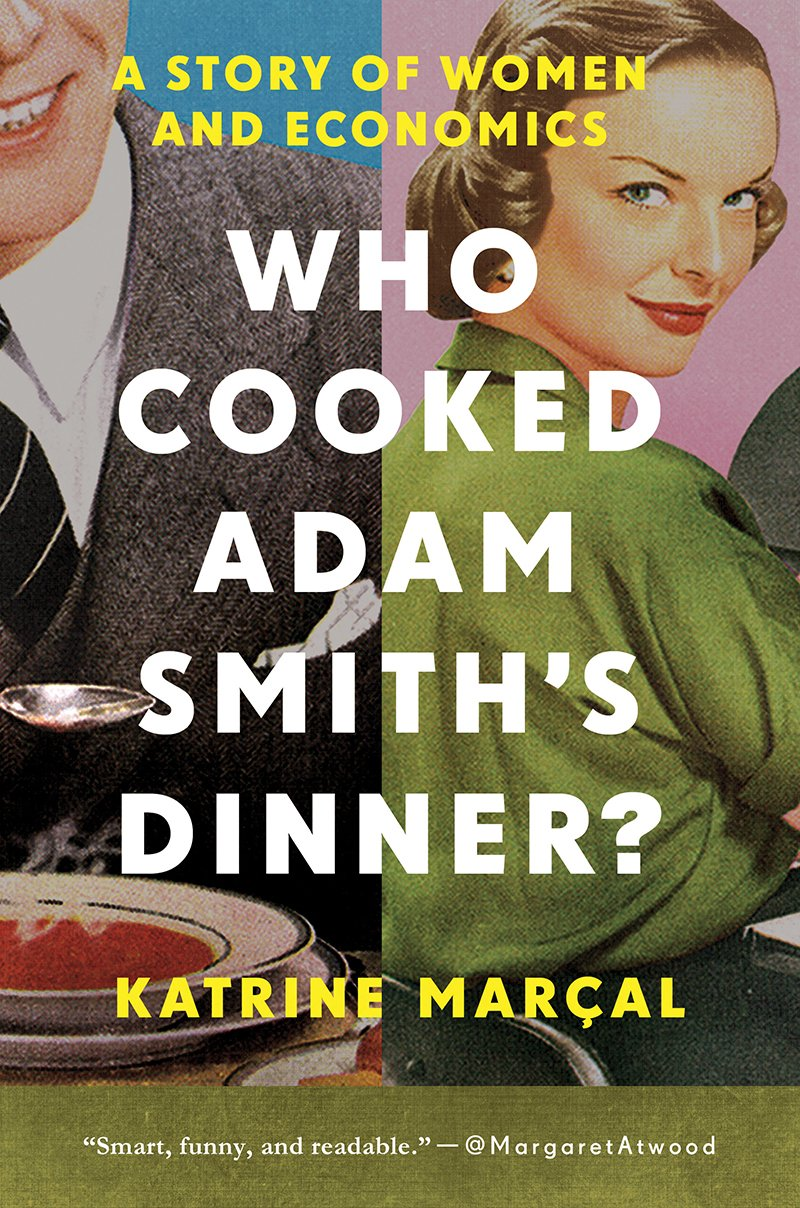
Courtesy of Annie Fadely
- Annie Fadely is a senior associate at Civic Ventures and a producer of the "Pitchfork Economics" podcast.
- Fadely says it's "obvious" that economics has a gender bias that's rooted in the field's foundations.
- When women primarily worked in the home, what they did was considered "uncounted," or not creating value.
- See more stories on Insider's business page.
From its most fundamental theories to the halls of academia, the field of economics is built by and for men.
Google "famous economists." If you click on every single link that appears on the first page of results, you'll find 124 unique men and 12 unique women (but I'd recommend taking my word for it). In the history of the field of economics, women make up less than 10% of the economists that Google considers front-page worthy.
No matter what your metric is, it's obvious that the field of economics has a gender bias
Although women earn undergraduate degrees at a higher rate than men do, they're not majoring in economics – women make up only one-third of undergraduate economics students. And as women climb the slow ladder of academia, many drop off along the way; there are two men for every woman in economics PhD programs, three men for every woman among associate professors of economics, and six men for every woman among full-time professors.
Why doesn't the average woman make it as far as the average man does in economics? There doesn't seem to be a consensus, but we do know that the field certainly isn't as welcoming to women as it is to men. In a survey conducted by the American Economic Association in 2019, 40% of men indicated that they were satisfied with the overall climate within the field of economics, whereas only 20% of women agreed with that statement.
When former Federal Reserve Chair Janet Yellen was starting out on the economics faculty at Harvard as a junior professor in the 1970s, she says the men in the department ostracized her and refused to collaborate with her. To this day, female economists are less likely to be promoted than men are, and their research often undergoes a longer review process than papers written by their male counterparts. And they endure rampant misogyny – a group called Advocates for Diversity in Economics, comprised of graduate students and research assistants in economics, published an open letter on Medium last December calling out the pervasive harassment and discrimination in the economics profession.
We also know that male and female economists tend to gravitate toward different fields of specialization, with women favoring fields like labor, education, health, and industrial organization - topics that, in my personal experience, are noticeably absent for the first few years' worth of study in economics (noticeably not absent: antiquated theories credited almost entirely to men like Keynes, Smith, Pareto, and Laffer).
The implications of this gender imbalance are enormous and far reaching
Let's start at the foundations: The economic system that we currently have is implicitly designed for men.
Homo economicus is one of the most basic theories taught in Econ 101. It's the term assigned to the group of assumptions that economists employ when making predictions - that humans are utility maximizers, entirely rational, and completely self-interested at all times. It's also a synonym for the more commonly-used phrase economic man.
But if economic man doesn't quite resemble a real-life man (and he doesn't), he has precisely nothing in common with real-life women - which means that our economic beliefs and models exclude people who lack characteristics that our culture considers to be masculine (distant, competitive, driven by common sense, and unfailingly ambitious).
Women were still working in the home when the theory of economic man rose to popularity.
Her self-sacrificing nature (as viewed through the eyes of men) constrained her contributions in the private sphere, which was considered economically irrelevant. Everything that society expected a woman to do was uncounted - raising children, cleaning, and cooking can't be quantified as goods with value in traditional economics - so they aren't treated as activities that create value in daily life (for the record, the global value of unpaid care work is currently estimated at $10 trillion - one-eighth of the world's GDP).
In retrospect, that was pretty uncool on principle. But as women joined the workforce, that devaluation was never updated for the realities of modern life and it began to have real economic consequences. The economic policies that should be in place to make women's (and everyone's!) lives better just don't exist. We deprioritize essential programs and initiatives like maternity and paternity leave; universal child care and early childhood education; eliminating the tipped minimum wage (two-thirds of tipped workers are women); expanding Social Security (the average female retiree receives over $300 less per check than her male counterpart); and laws against discrimination in hiring, pay, and promotion.
It would be better for everyone if we adopted a system that recognized women as an equal partner in the economy, but you can't recognize economic woman if your models don't believe that she exists. It's a vicious cycle.
Take the theory of marginal product of labor, for example - the foundational theory in labor economics that workers are paid exactly what they're worth based on the individual value that they create. If we take that to be true, then it follows that women earn lower wages across the board than men do simply because they are less productive. When they show up to do the same work, they are less valuable than a man would be.

Courtesy of Katrine Marçal
It's not worth it to spend time refuting that notion here - it's obviously not true. But in a 2014 survey of professional economists, 54% of male economists agreed with the statement that the gender wage gap is largely explained by differences in education and voluntary occupational choices. Only 14% of female economists said the same. Women know it's BS. But there aren't enough women in economics to do anything about it (and the women that are in economics are consistently being devalued by their male colleagues).
With all of this in mind, it becomes unsurprising and even predictable that women make up 63% of federal minimum-wage workers but only 5% of CEOs at Fortune 500 firms. In economic policy, as it is in the entire field of economics, women are still defined as the "other" - only in relation to economic man, only as the second sex.
On the "Pitchfork Economics" podcast, we're wrestling with the nonexistence of economic woman. Economist Dr. Lisa D. Cook and pre-doctoral student Anna Gifty Opoku-Agyeman share the experiences that led them to write a New York Times op-ed about discrimination against black women in economics (black women accounted for only 2% of bachelor's degrees in economics in 2017, and 0.6% of doctoral degrees). And journalist Katrine Marçal, the author of "Who Cooked Adam Smith's Dinner? A Story of Women and Economics," joins us to imagine what an inclusive economics might look like.
The policies that govern our lives are based on the economics that we decide to follow. The only path to a new economics is by full representation. If women were reliably included in the field of economics, we would have better outcomes for everyone. This isn't about putting down one half of the population in service of the other, but instead about crafting an economy that addresses the realities of the world - as opposed to relying on theories that were adopted before women took the rights they were due.